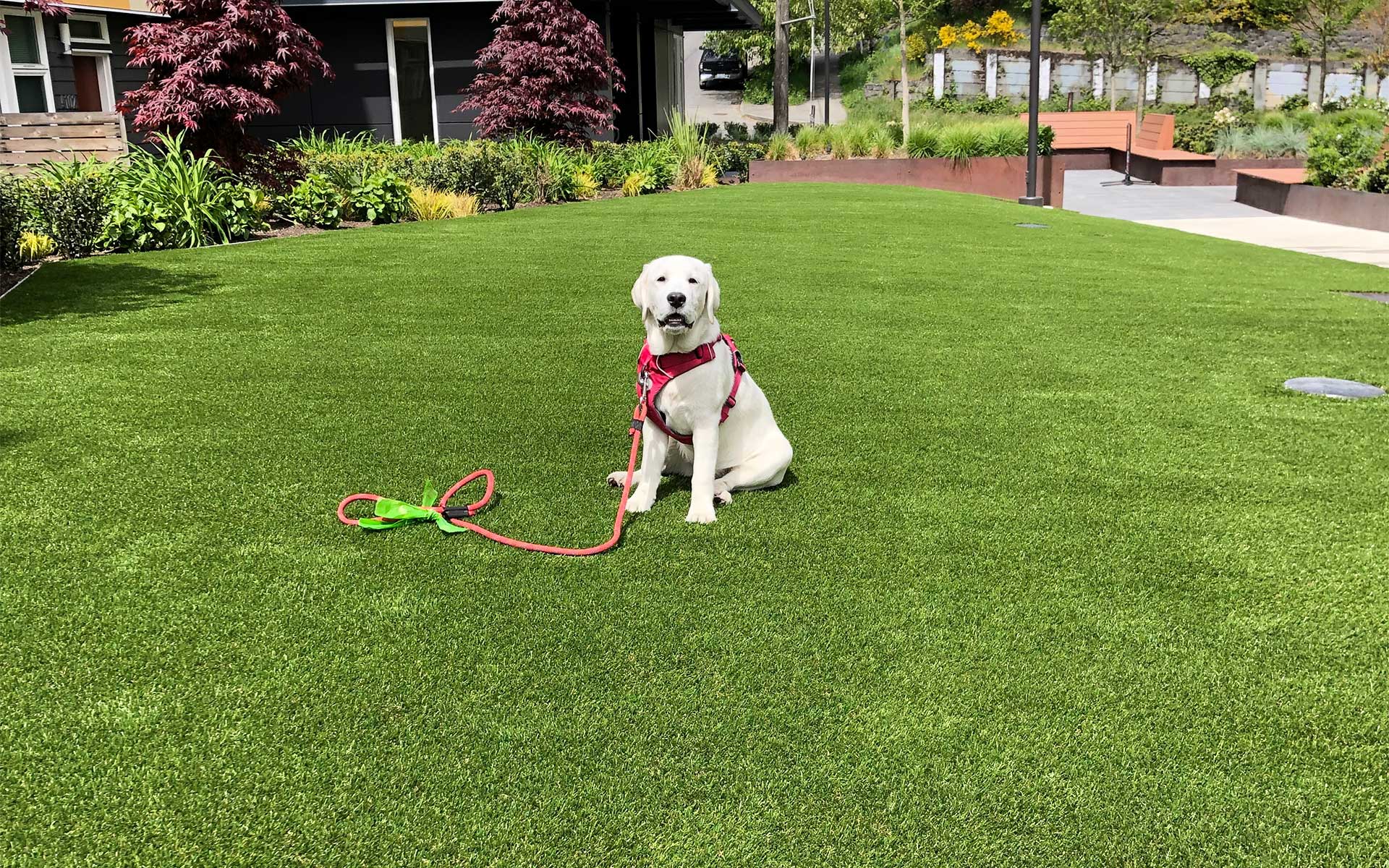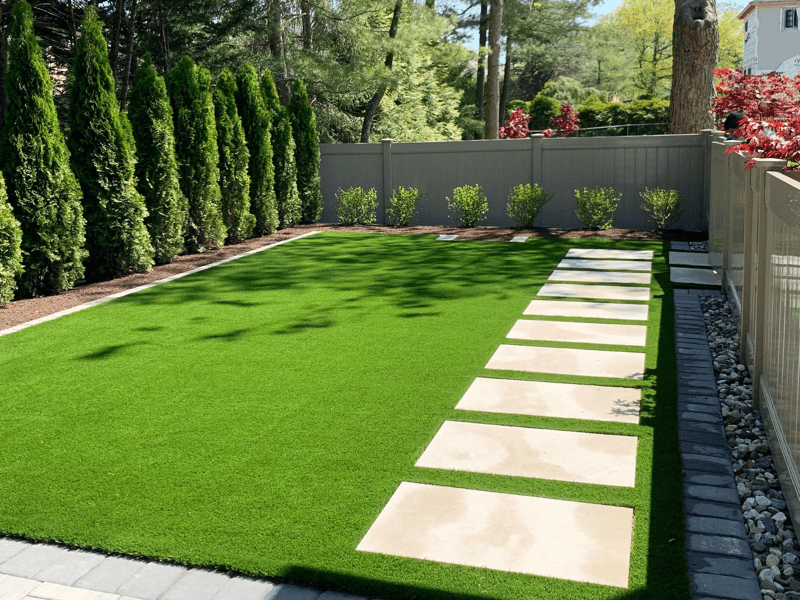Find the Best Artificial Turf Companies Phoenix for Your Home or Commercial Space
Find the Best Artificial Turf Companies Phoenix for Your Home or Commercial Space
Blog Article
Look Into the Environmental Advantages of Opting for Synthetic Grass Solutions
The fostering of artificial lawn options provides an engaging possibility to address pressing environmental challenges. By dramatically lowering water usage and lessening the application of dangerous chemicals, these options not just advertise lasting landscape design yet likewise secure regional ecological communities.
Water Preservation Conveniences
One of the most substantial benefits of man-made lawn is its capacity to save water. In contrast, fabricated turf does not need watering, substantially reducing the total demand for water resources.
By removing the demand for routine watering, man-made grass adds to lasting landscape methods and helps reduce the environmental influence of excessive water usage. Furthermore, the conservation of water encompasses the reduction of drainage, which can result in soil disintegration and waterway air pollution.
Furthermore, the setup of man-made lawn allows municipalities and property owners to designate water sources more successfully, focusing on important usages such as alcohol consumption water and agriculture. The shift in the direction of fabricated lawn not just promotes liable water usage yet also lines up with more comprehensive environmental goals targeted at protecting natural deposits.
As communities significantly prioritize sustainability, the water preservation benefits of synthetic grass provide an engaging case for its fostering in domestic and industrial landscaping jobs.
Decreased Chemical Usage
The change to synthetic grass considerably decreases the reliance on chemical therapies typically made use of in all-natural turf upkeep. Conventional lawn management generally involves the application of herbicides, chemicals, and plant foods to promote development and control insects. These chemicals can position threats to human health and wellness, local wildlife, and the atmosphere, adding to dirt and water contamination.
In comparison, synthetic grass gets rid of the requirement for these hazardous compounds. By lessening the release of synthetic substances into the ecosystem, synthetic turf promotes healthier soil and water systems.
In addition, the lack of chemical overflow related to fabricated turf installments helps safeguard regional waterways from pollution, supporting water life and keeping biodiversity. Arizona turf. As areas significantly focus on sustainable practices, opting for man-made lawn presents a viable solution that aligns with environmental conservation objectives. Via this change, homeowner can appreciate lush green spaces without jeopardizing environmental wellness, paving the means for a more lasting future
Lower Carbon Footprint

Additionally, the installation of synthetic grass can result in substantial water conservation. All-natural lawns require considerable amounts of water for watering, which not only contributes to the carbon impact related to water removal and therapy but also stress neighborhood water resources. On the other hand, synthetic grass needs minimal pop over to this site maintenance, needing no watering, consequently considerably minimizing water use and its associated energy prices.
Furthermore, the longevity of fabricated turf adds to its decreased carbon impact. With a lifespan of approximately 15 years or even more, the demand for regular substitutes is lessened, leading to less waste and lower power intake in production and dealing with traditional yard options. Generally, synthetic lawn offers a lasting option for eco mindful landscaping.
Environment Conservation
Environment conservation is a crucial factor to consider in the argument over landscaping selections, particularly when comparing fabricated grass to all-natural grass. Natural lawn yards often call for extensive maintenance, including the use of pesticides, plant foods, and herbicides, which can detrimentally influence neighborhood ecological communities. These chemicals can leach into the dirt and waterways, hurting native flora and animals and disrupting local environments.
In contrast, fabricated lawn presents a possibility to lower the eco-friendly impact of landscaping. By going with artificial yard, property owners can minimize the disruption of natural environments related to conventional lawn treatment methods. Synthetic grass eliminates the requirement for dangerous chemicals, consequently securing nearby wild animals and preserving the honesty of bordering ecological communities. Moreover, the setup of synthetic grass can cause the conversion of former yard locations right into even more biodiverse landscapes, such as pollinator gardens browse around these guys or native plant locations, which can sustain regional wild animals.
Ultimately, the transition to synthetic grass not only conserves water and lowers maintenance initiatives however also cultivates a much more harmonious relationship between human activities and the native environment, promoting habitat preservation while doing so.
Long-Term Sustainability
Lasting sustainability is a vital aspect in examining the benefits of synthetic grass over typical grass yards. One of one of the most substantial benefits of synthetic grass is its sturdiness; it can last approximately 15-20 years with very little maintenance, whereas natural grass calls for regular reseeding and substitute. This long life decreases the requirement for consistent resources, such as water, plant foods, and chemicals, which are necessary for maintaining a healthy yard lawn.
In addition, artificial lawn adds to a decrease in carbon discharges linked with lawn treatment tools. Typical grass frequently need gas-powered lawn mowers, trimmers, and blowers, every one of which add to air contamination. Arizona artificial turf. On the other hand, synthetic grass gets rid of the demand for such equipment, promoting a cleaner atmosphere
Additionally, the manufacturing of fabricated grass progressively utilizes recycled materials, boosting its sustainability profile. As suppliers embrace environment-friendly practices, the environmental footprint of fabricated grass continues to decrease.

Verdict
The fostering of synthetic grass remedies presents considerable ecological benefits, consisting of considerable water conservation, decreased reliance on harmful chemicals, and a reduced carbon impact. Moreover, artificial grass aids in preserving all-natural habitats by decreasing land disruption and promoting long-lasting sustainability with using sturdy materials. Jointly, these aspects emphasize the possibility of synthetic grass to contribute favorably to environmental wellness and offer a practical alternative to typical landscaping methods in an increasingly resource-conscious world.
In comparison, synthetic turf does not require watering, substantially minimizing the overall need for water sources. By lessening the launch of artificial compounds into the ecosystem, synthetic grass advertises healthier dirt and water systems.
Additionally, the installment of synthetic lawn can result in significant water preservation. In comparison, man-made grass needs very little maintenance, calling for no watering, consequently considerably reducing water usage and its connected power prices.

Report this page